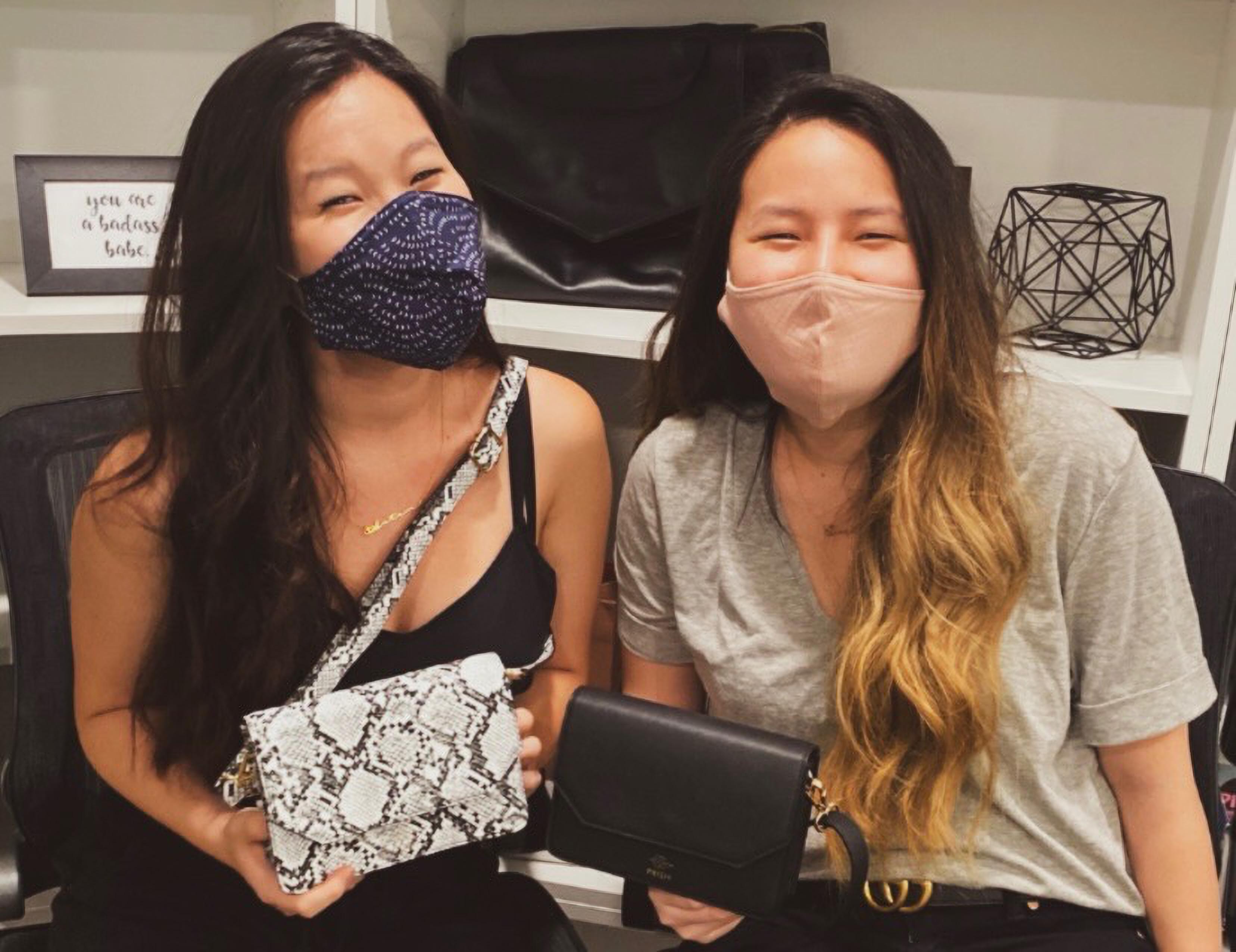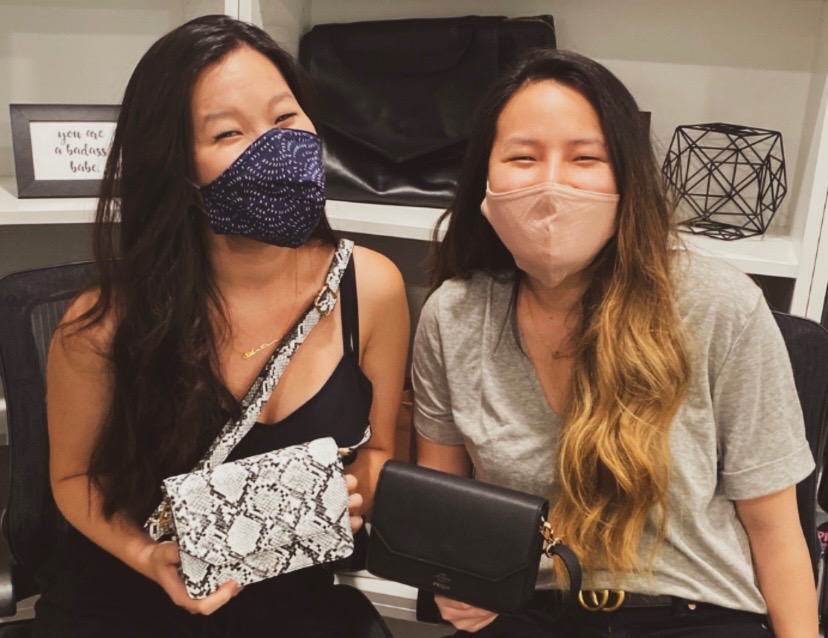
For many of us working women, busy Friday evenings consisted of getting off work and catching a happy hour with our friends or heading to an in-person networking event. Our backpacks and purses were the trusty sidekicks that we needed to carry anything and everything from our laptops to our toiletries.
That is, until mid-March of 2020. With the spread of COVID-19, many workplaces transitioned their employees to remote work, in-person networking events and university classes moved to Zoom, crowded city bars emptied, and early morning commutes were no more. Faithful work bags no longer served the essential functions they once did, as our commutes were replaced with 7 feet walks from the couch to the fridge. As we were all adjusting to the whirlwind of changes that took place before us, Rachel and Helen, Co-Founders of PRISM Bags, were prepared to launch their flagship convertible workbag in our fast-changing world, where people weren’t going to work anymore (or out to meet people at all, for that matter).
Rachel and Helen planned to launch their flagship work bag product in April, one that would help women everywhere have an option they can confidently take to work and to the bar, minus the hassle of digging around for small objects. The women’s bag market is bifurcated into two categories: an uncomfortable “first name last name” famous designer tote that looks ready for the runway, with little to no internal organization, or a canvas school backpack that is reminiscent of your college days (or if you’re in the tech industry, a hiking backpack). The product was made ethically, using sustainable, quality vegan materials.
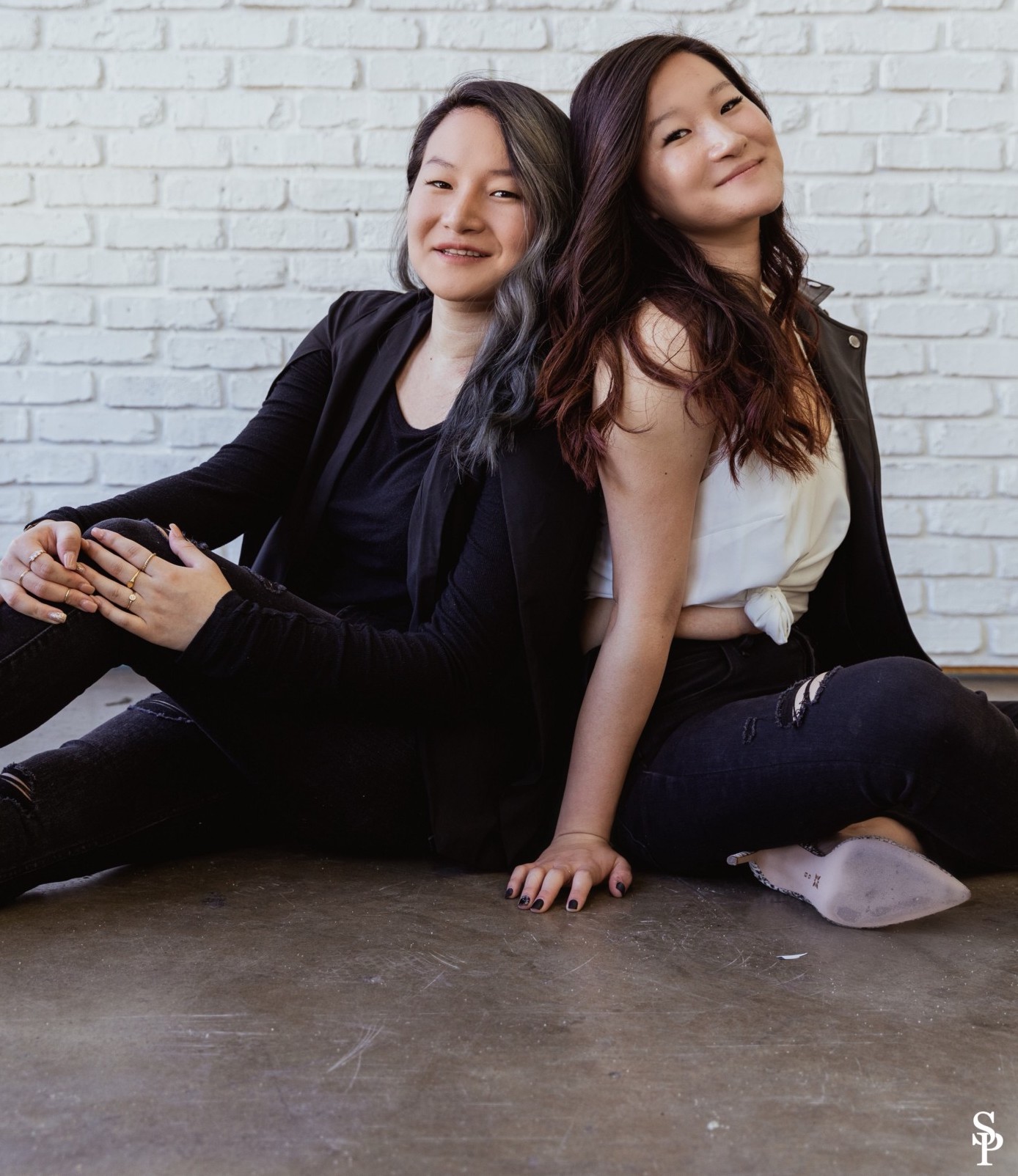
“We had spent two years developing our flagship work bag and we were looking forward to launching it. However, we realized that our world was changing and the members of our community were adapting to the circumstances,” said Helen Lee, Co-Founder of PRISM Bags, “we had built our business and brand around this particular product, but it was necessary for us to realize that this wasn’t the time and place for the launch of something we’ve worked really hard at.”
So, they decided to make the difficult decision to postpone the launch of their work bag and create a new product that was more fit for our times. “Our brand is all about empowerment, at its core, regardless of the circumstances. So we decided to pull the brakes on a product we spent two years developing and think about the problems that people are facing during this current time,” said Rachel Lee.
Undertaking a pivot for any business is no easy feat, let alone in a pandemic. However, for many female founders of color, COVID-19’s effect on their businesses has proven to be exceptionally challenging and devastating. According to a McKinsey report, the pandemic has had a disproportionate impact on minority-owned small businesses.
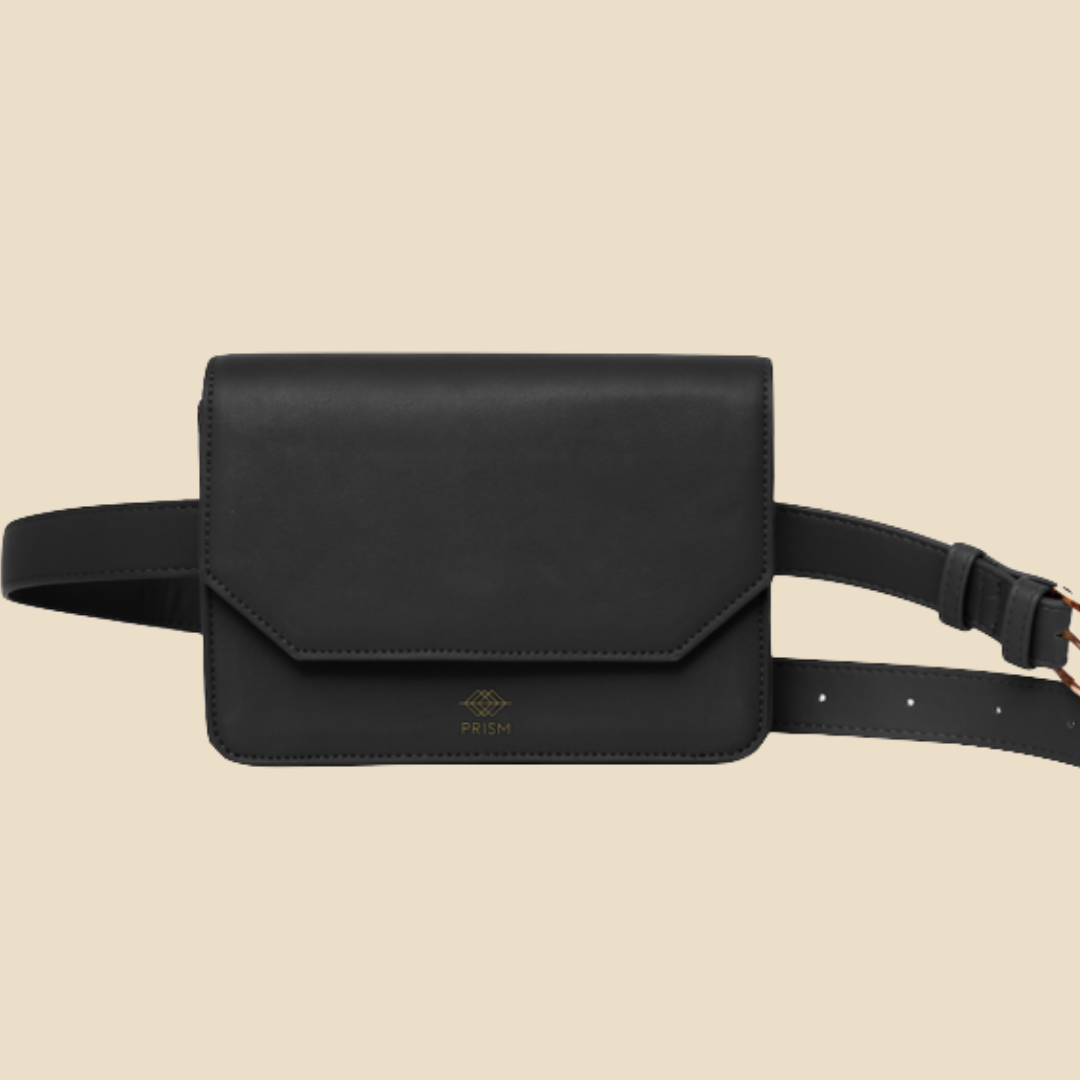
For Rachel and Helen, the decision to pivot didn’t come easy. But regardless of the situation, they persisted. From there, they created a new product, a 2-in-1 convertible, hands-free, belt bag/shoulder bag, equipped with a pocket for your mask, hand sanitizer, and keys. Dubbed as the uncompromising bag for unprecedented times, the bag is emblematic of the Co-Founders’ struggles and triumphs in adapting to a tumultuous time.
Here are some major lessons that they learned throughout the difficult process of adapting, innovating, and adjusting to their circumstances.
1. Self-care and community outreach is not only good for the soul, but also for business.
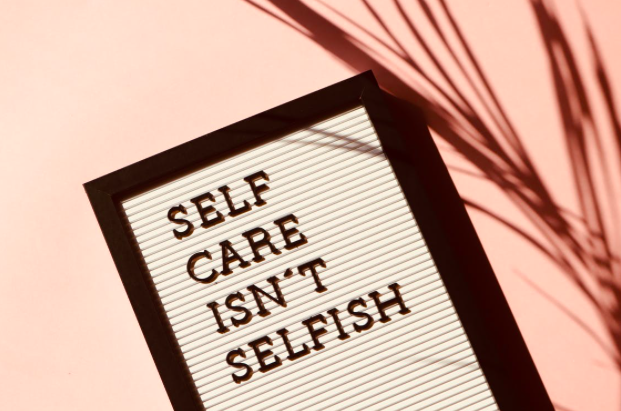
H: “We were put between a rock and hard place when it came to operating our business. As co-founders, we are very passionate about the problem we are trying to solve and our customers. As activists, it was second nature for us to reach out to our community and talk to people about what their new day-to-days looked like. One of the greatest silver linings about the pandemic is that even when you’re worlds apart, you can connect virtually with people in an instant, even for a few minutes. It was really crucial for us to get in touch with the members of our community that we’re building our products for, be able to check in with one another, and understand what their changing needs are and how companies like us can be a part of the solution. This led us to undertake our difficult pivot and launch our RESILIENT collection to also give back to our community and serve those who are on the front lines of the COVID-19 pandemic.”
R: “It is so easy to get discouraged when everything you know and have your mind set on is changing. It fuels me to know that small businesses around us are thinking of new ways to solve novel problems and figuring out how to make critical changes to survive, even during difficult times. None of us could have imagined the impact of this, but staying connected with people, practicing self-compassion, and taking things one day at a time has been immensely helpful.”
H: “Likewise. In the corporate space, I felt that there was an emerging narrative of “winners” and “losers” when it came to how businesses were doing during COVID-19. On one hand, I’ve seen so many local businesses and brick and mortar stores struggle, and on the other hand, I’ve [witnessed] many tech-based companies become astronomically successful and even lower their overhead costs during this time. It was difficult for us to locate ourselves within those two worlds and what I came to understand is that so many young startups fall in the limbo in between, depending on what your market is and how relevant your product is. When COVID-19 hit, we were worried about our ability to stay relevant in the bag market especially since it was an existential question of whether as a business we should continue to launch a less relevant product with optimistic messaging, or whether we should branch out and adapt to what our customers are truly needing at the time. This was particularly difficult as a seed stage startup that had just locked down their go-to-market strategy. Something that I had to do for self-care was actively practice not comparing our progress to the success stories of others, since we’re all doing what we can to adapt. The reality of the matter is that most of us are trying to take it one day at a time and figure out what’s next and how to best adapt to the situation.”
2. Adjusting your strategy and goals doesn’t mean you have to have to throw the whole playbook away.
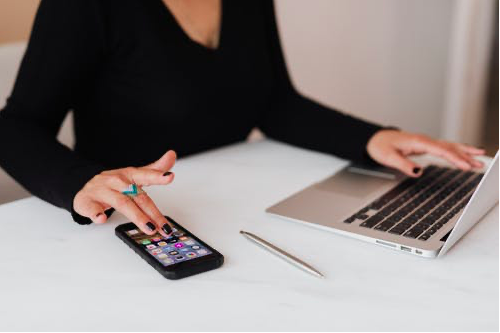
H: “It was so challenging to understand what this situation meant for us. As female founders of color, the financial impact of COVID-19 was filled with anxiety, as we weren’t sure what the situation had in store for us. But it’s also important to recognize the advantages we had as a small startup. We were able to pivot faster and more efficiently than a large corporation might during this time. The analogy that I like to employ is that in the middle of an avalanche or a snow storm, it is easier to make a U-turn as a two-person smart car, than it is for a 16-wheeler truck.”
R: “For us, it was really important to understand that we were going to be alright, and the feelings of despair and uncertainty were normal. It was helpful for us to take a step back, recognize that this was a critical piece of what we were going through as business owners. We both have a lot more clarity than we did back in April, but being able to use each other as a sounding board and brainstorm solutions was really helpful. We ended up keeping a lot of the structure and original plans of how we wanted to enter the market, but made many tweaks regarding our messaging.”
3. The situation may seem difficult, but you have power to control what you do.
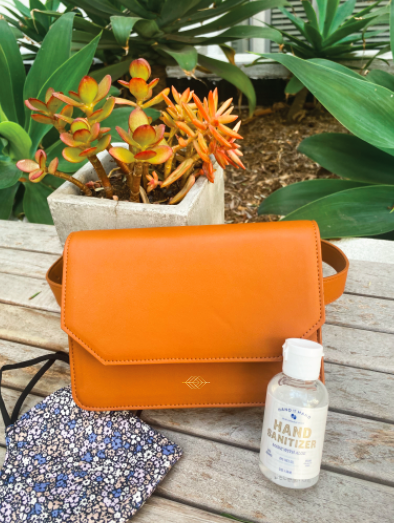
R: “Our launch was not what I had imagined, planned, or envisioned, but I think there’s merit in adapting to the circumstances, acknowledging the new reality, and being in tune with what our customer’s needs are. It has been a challenging few months for us to figure out our new strategy, but we’re pivoting and making it work. There were many days in which we made it a priority to celebrate small milestones, like getting a hang tag designed and printed. Resilience also describes the people we’re targeting; as womxn, we face a unique set of challenges in the workplace, higher education, and beyond. Regardless of the circumstances and difficulties, we persist and are capable of thriving and breaking through barriers (but also, have things that make our lives easier and look good while doing so.)”
H: “I tell myself all the time, ‘You will travel the world. It may not seem like it now, but there will come a day where you will travel the world again, see your co-workers and classmates again, and my personal favorite, work in an ambient coffee shop and enjoy the presence of strangers that are more productive than you are.’ It’s been comforting to me to know how we show up for each other when we need it and pivoting as a business has taught me a lot about the kind of business that we want to be and scale to grow as a part of a generation that is more socially conscious.”


